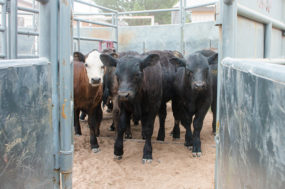Congrats on what may be the most practical/applied beef/ranching industry publication available. I appreciate the timeliness of your articles and in particular the editor’s column on the GMO debate in the April issue. I applaud your encouragement of greater transparency across our industry. Such counsel is spot on.
I do have concerns regarding your statement: “For livestock, if the animal has consumed feed raised from GMO seeds for half its lifetime, that animal’s milk, eggs or beef would be deemed a GMO protein.”
1. Scientific evidence (versus opinion of those who oppose the implementation of GMO technology) indicates GMO seeds/feeds are not different [nutritionally] than their non-GMO counterparts. Proteins in GMO feeds/seeds contain the same amino acids as proteins in non-GMO feeds/seeds. The primary difference is in the DNA and which/how genes are expressed.
2. In the process of digestion (cattle, swine or poultry), carbohydrates and proteins are broken down by naturally occurring enzymes to their basic components of sugars and amino acids, respectively. These sugars (ex. glucose) and amino acids are absorbed from the GI tract and used by body tissues for work (or storage as fat) or protein replacement and accretion.
Relative to concerns related to “GMO seeds and plants,” the ruminant’s story is even better than poultry – plant proteins and carbohydrates broken down to sugars and amino acids by rumen bacteria; sugars become volatile fatty acids, amino acids are reassembled into bacterial proteins; bacterial proteins digested and amino acids most recently of bacterial origin absorbed and used to make milk and beef.
3. Since sugars and amino acids in the milk, eggs and beef cannot be differentiated according to source (GMO versus non), then to your question regarding length of feeding period and the need for GMO labeling – the feeding of any GMO seeds/feed would require the milk, eggs and beef to be labeled as GMO protein.
Animal and avian proteins originating from plant proteins like they have since the creation. This is much akin to the LFTB debacle – we were adding lean beef to beef and got slammed for it by opinion and hype.
My humble opinion – agriculture (both plant and animal) needs to be very careful how much (if any) ground we concede relative to GMOs.
If we:
- Believe the global population will reach 9 billion people by 2050
- Are sincerely concerned about climate change and human well-being
- Intend to feed and care for those 9 billion people
Then we must adopt GMO technology in food production. Otherwise we will [futilely] continue deforestation and the resurrection of [less efficient] production practices left behind decades ago.
Thanks again for a great magazine.







